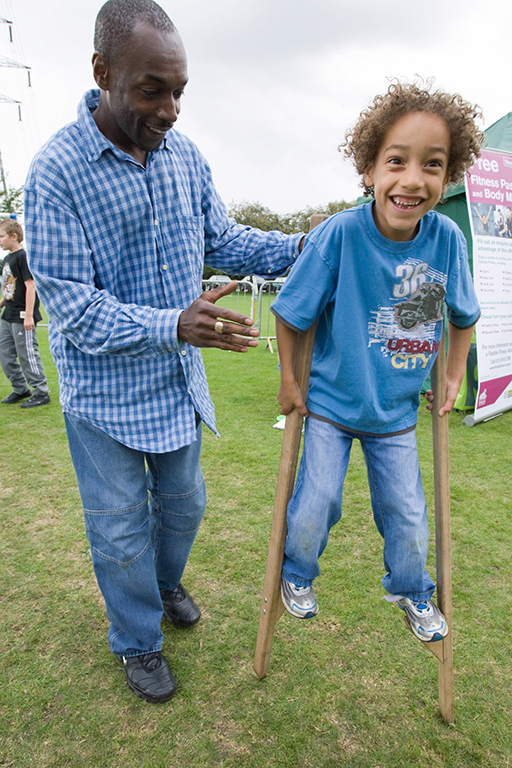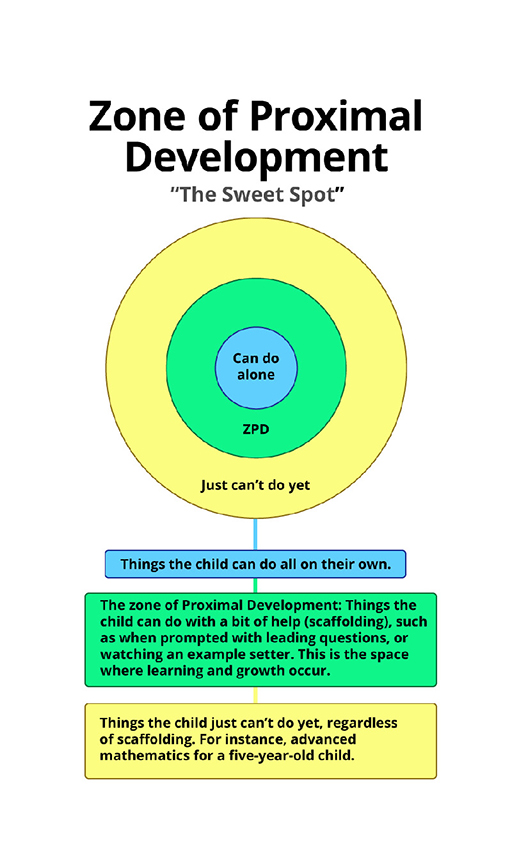3 Encouraging healthy development
In Section 2 you looked at how important the role of the environment is. In this section you will look more closely at the role of the adult whether that be parent or practitioner.

You have looked at how adults can resource the environment to aid child development, but they also need to think about how their own actions and behaviours can encourage both physical and holistic development. Adult–child interactions are very important in play.
Vygotsky was a famous child development psychologist whose work has had a lot of impact on how adults engage with young children, particularly in educational settings. A key phrase of his translates into English as the ‘More Knowledgeable Other’ (MKO); this can describe the adult who supports a child in their play so that they are operating within their ‘Zone of Proximal Development’ (ZPD).
This may sound like a tricky term but really all it means is the difference between what a child can do on their own and what they can do with adult intervention.
The adult intervention could be questions, assertions or actions that the adult uses when the children are playing. It’s always helpful to see what this looks like in practice so let’s look at the example of a child jumping.
The practitioner is watching a child jumping and says:
- How can you make yourself jump higher? (question)
- If you use your arms and bend your knees you can jump higher! (assertion)
- Look at me! (action: the adult models how to jump higher).

